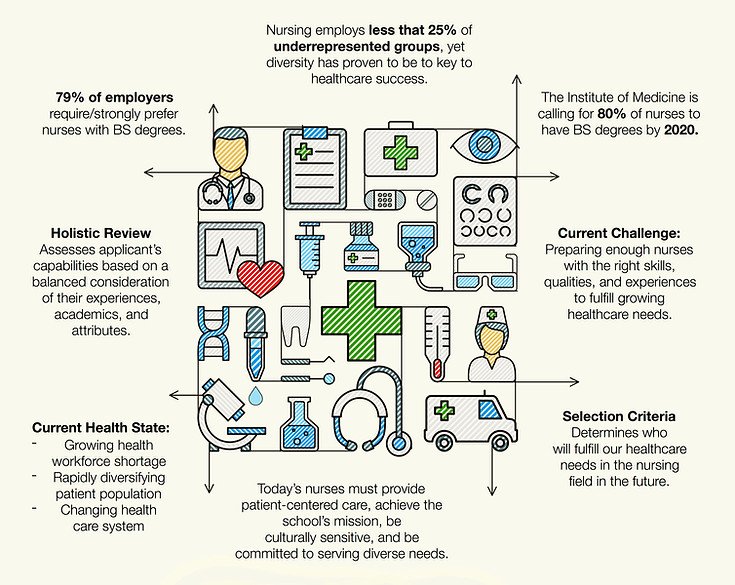Holistic Reviews
The Future of Academic Admissions
What is Holistic Review?
Holistic review is a university admissions strategy that assesses an applicant’s unique experiences alongside traditional measures of academic achievement such as grades and test scores. It is designed to help universities consider a broad range of factors reflecting the applicant’s academic readiness, contribution to the incoming class, and potential for success both in school and later as a professional. Holistic review, when used in combination with a variety of other mission-based practices, constitutes a “holistic admission” process.
Adapted from the Association of American Medical Colleges (2013) Roadmap to excellence: Key concepts for evaluating the impact of medical school holistic admissions.
In order to achieve this goal, many universities have begun making changes not only to their curricula and learning environments, but also to the practices used to select students for admission. With the growing recognition that standardized test scores and GPAs do not capture the breadth of experiences and personal qualities that an applicant brings to the university and the profession, many universities have begun to incorporate “holistic review” into the admission process, with the goal of admitting a diverse body of students that will not only excel academically, but will also have the qualities needed for success in the current work environment.
Adapted from Urban Universities for HEALTH.
Leaders from 91 percent of the schools stated that holistic review had a positive impact on the school, including increased diversity; admission of students who are better prepared for success in the profession; admission of students who have faced barriers to success in their lifetimes and who would have been excluded under traditional admissions processes; and increased awareness of and sensitivity to diversity among admissions committee members.
“Colleges using holistic review were more likely to track student engagement with the community, student cooperation and teamwork, and student openness to ideas and perspectives different from their own,” said Dr. Greer Glazer, dean of the College of Nursing at the University of Cincinnati, who led the study.


